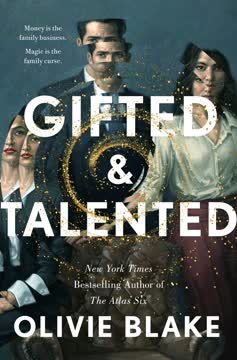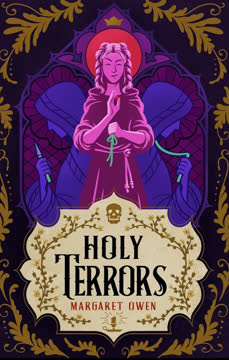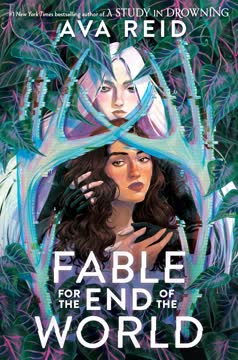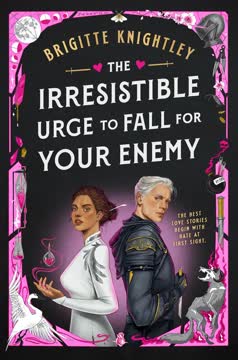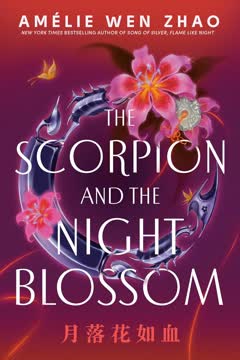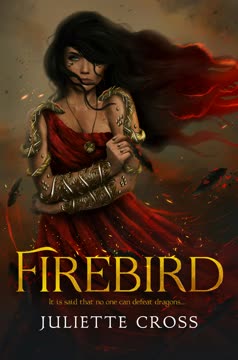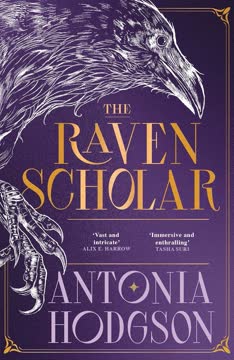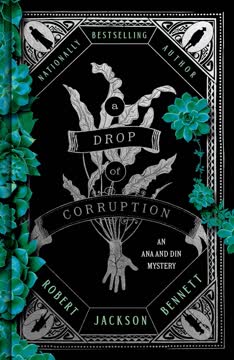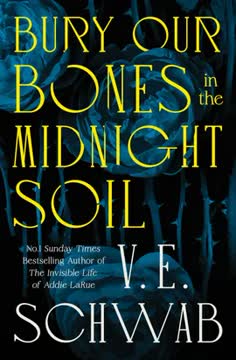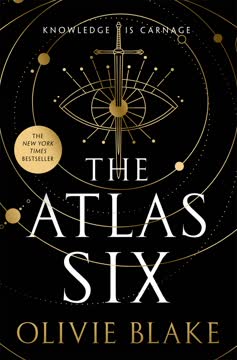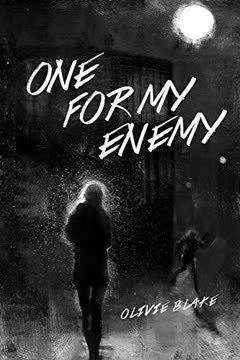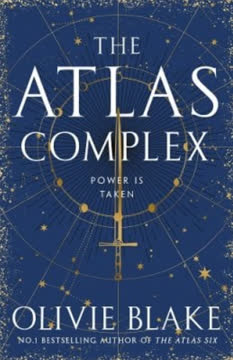Plot Summary
The Wren Siblings' Burden
The story opens on the Wren siblings—Meredith, Arthur, and Eilidh—each prodigies in their own right, each carrying the weight of their father Thayer Wren's magitech empire, Wrenfare. Meredith, the eldest, is a biomancy genius and CEO of Birdsong, a start-up promising happiness through a neuromantic app called Chirp. Arthur, the middle child, is a young, idealistic congressman, struggling with public scrutiny and his own magical malfunctions. Eilidh, the youngest, is a former ballet prodigy whose career was ended by injury, now adrift in the family business. Their father's sudden death throws them together, forcing them to confront their own failures, rivalries, and the impossible expectations of their upbringing. The siblings' relationships are fraught with resentment, longing, and the desperate need for approval, all set against the backdrop of a world where magic and technology are inseparable.
Inheritance and Apocalypse
Thayer Wren's death triggers a cascade of events: the reading of his will, the scramble for control of Wrenfare, and the surfacing of supernatural disasters. Eilidh, haunted by a literal monster in her chest, finds herself the unwitting source of biblical plagues—locusts, darkness, and more—whenever her emotions spiral. Arthur's magic, once a childhood quirk, now causes electrical surges and near-death experiences. Meredith faces blackmail from her ex, Jamie, who threatens to expose the fraudulent underpinnings of Chirp. As the siblings gather for the funeral, the world around them begins to unravel, both magically and emotionally, mirroring the chaos within their fractured family.
The Price of Happiness
Meredith's company, Birdsong, has built its fortune on the promise of happiness, but the truth is more complicated. Chirp, the app, is less a cure for depression than a tool for capitalist manipulation, delivering dopamine hits at the register to drive consumer spending. Meredith's ambition, fueled by the trauma of her mother's death and her father's coldness, leads her to compromise her ethics, falsify results, and ultimately sell out to Tyche, her father's rival. Jamie's investigation threatens to destroy her, but their unresolved love complicates everything. The pursuit of happiness—personal, familial, and societal—proves to be a poisoned chalice, leaving Meredith to question what, if anything, is real.
Sins of the Father
Thayer Wren's legacy is both a blessing and a curse. His brilliance as a technomancer is matched only by his emotional distance and capacity for manipulation. He pits his children against each other, favoring Eilidh with affection but Meredith with responsibility, and leaving Arthur perpetually seeking approval. The will, when finally revealed, gives Wrenfare to Meredith, money to all the children, and a share to his unborn child with his assistant, Dzhuliya. The revelation of Thayer's affair and secret child shatters the siblings' already fragile sense of family, exposing the rot at the heart of their inheritance.
The Prodigy's Downfall
Meredith's world collapses as Jamie's exposé is picked up by the New York Times, and her business partner turns on her. Facing public disgrace, legal action, and the loss of everything she's built, Meredith is forced to confront the emptiness at the core of her ambition. Her relationship with Cass, her safe but passionless fiancé, ends as she realizes she cannot escape the consequences of her choices. The myth of the prodigy—of being special, chosen, destined for greatness—crumbles, leaving Meredith to reckon with her own humanity.
The Unraveling of Genius
As the siblings grapple with their personal crises, the magical disasters escalate. Arthur's repeated deaths, Eilidh's apocalyptic plagues, and the literal darkness that falls over the world all point to the limits of their power and the dangers of unchecked genius. The siblings seek help from Lou, Meredith's estranged childhood friend and the story's wry, omniscient narrator, who holds the key to understanding their magic—and their pain. The reunion is fraught with old wounds, but also the possibility of healing.
The Monster in the Chest
Eilidh's internal monster is both a metaphor for and a literal source of her suffering. Her inability to process her grief, her father's overprotection, and her own self-doubt have left her vulnerable to possession by destructive magic. Only by embracing her pain, dancing for herself rather than for an audience, and accepting her own darkness can she begin to heal. Her journey is one of self-acceptance, the reclamation of agency, and the realization that happiness cannot be manufactured or bestowed—it must be chosen, again and again.
Love, Lies, and Legacy
The siblings' romantic entanglements mirror their familial dysfunction. Arthur's polyamorous relationships with Gillian, Yves, and Philippa are tested by secrets, jealousy, and loss. Meredith's love for Jamie is both her salvation and her undoing, as their mutual obsession leads to both betrayal and forgiveness. Eilidh's affair with Dzhuliya, complicated by Dzhuliya's pregnancy with Thayer's child, forces her to confront her own desires and the boundaries of loyalty. Throughout, the longing for love—for family, for home, for acceptance—drives the characters to both greatness and ruin.
The Art of Survival
In the aftermath of disaster, the siblings are forced to adapt. Meredith, facing prison, appoints Lou as CEO of Wrenfare, offering her a chance at redemption and reparations. Arthur, having lost his father, his lover, and his imagined child, finds solace in the love of Gillian and Yves, and the possibility of a new kind of family. Eilidh, freed from the burden of her father's expectations, chooses to live for herself, to dance again, and to embrace the messiness of life. The art of survival is not in perfection, but in resilience, forgiveness, and the willingness to begin again.
The End of Eden
The myth of Eden—of a perfect family, a perfect legacy, a perfect self—is finally laid to rest. The siblings realize that their father's love was conditional, their inheritance a poisoned gift, and their own dreams built on illusions. The funeral becomes a moment of catharsis, as each sibling speaks their truth, mourns what was lost, and lets go of the need for approval. The darkness lifts, both literally and metaphorically, as Eilidh dances her grief into light, and the family, fractured but surviving, steps into an uncertain future.
The Will's Last Word
The reading of Thayer's will is a moment of reckoning. Meredith inherits Wrenfare, but the company is a sinking ship, burdened by debt and lawsuits. Eilidh and Arthur receive money, but not the legacy they expected. Dzhuliya, pregnant with Thayer's child, becomes the unlikely heir to a share of the fortune. The siblings must decide what to do with their inheritance—sell, rebuild, or let it die. Meredith, choosing accountability, turns herself in for fraud and appoints Lou as her successor, offering her a chance to fix what was broken.
The Darkness Descends
As the magical darkness threatens to become permanent, the siblings are forced to confront their deepest fears and regrets. Eilidh, at the funeral, channels her pain into dance, breaking the curse and bringing back the light. The act is both a personal and communal exorcism, a testament to the power of art, vulnerability, and self-acceptance. The apocalypse is not averted by heroism or genius, but by the willingness to feel, to grieve, and to let go.
Death Comes in Threes
The story is marked by three deaths: Thayer, Philippa, and the imagined child Riot. Each loss is a catalyst for change, forcing the characters to reevaluate their lives, their relationships, and their sense of self. Grief is not something to be overcome, but something to be lived with, honored, and transformed. In the end, the siblings are not healed, but they are changed—older, wiser, and more capable of love.
The Gift of Failure
Failure, once the great fear of the prodigy, becomes a gift. Meredith's downfall is not the end, but the beginning of a new chapter—one where she is free from the tyranny of perfection, able to love and be loved without conditions. Arthur, no longer defined by his father's expectations, finds meaning in the ordinary, the everyday, the good enough. Eilidh, no longer the ingenue, discovers that life after loss is still worth living. The wisdom of imperfection is the wisdom of survival.
Forgiveness and Aftermath
The story ends not with triumph, but with forgiveness—of self, of others, of the past. Meredith and Lou reconcile, offering each other the chance to rebuild what was lost. Eilidh and Dzhuliya find a tentative peace, accepting the messiness of their shared history. Arthur, Gillian, and Yves create a new kind of family, one built on honesty and acceptance. The work of healing is ongoing, imperfect, and never truly finished, but it is possible.
The New Beginning
In the final scenes, the siblings and their extended family gather for a meal, a ritual of togetherness that is both ordinary and sacred. The future is uncertain—Meredith faces prison, Arthur an uncertain political career, Eilidh a new life without her father—but the possibility of happiness, of belonging, remains. The story ends with the promise that, even after the end of Eden, there is still life, still love, still hope.
Characters
Meredith Wren
Meredith is the eldest Wren sibling, a biomancy genius whose life is defined by the trauma of her mother's death and her father's emotional distance. Driven by the need to prove herself, she builds Birdsong and Chirp, only to compromise her ethics and become ensnared in fraud. Her relationships—with her siblings, her ex Jamie, and her fiancé Cass—are marked by ambition, defensiveness, and a desperate longing for love she cannot accept. Meredith's psychological arc is one of disillusionment and, ultimately, acceptance: she learns that happiness cannot be engineered, that love cannot be earned through achievement, and that failure is not the end. Her reconciliation with Lou, her willingness to face the consequences of her actions, and her final embrace of imperfection mark her as a deeply flawed but ultimately sympathetic figure.
Arthur Wren
Arthur, the middle child, is a young congressman whose public persona masks deep insecurity and a chronic need for approval. Haunted by his father's disappointment and his own magical malfunctions, Arthur struggles to find his place in the world. His relationships—with his wife Gillian, his lovers Yves and Philippa, and his siblings—are characterized by a longing for connection and a fear of abandonment. Arthur's repeated deaths and resurrections are both literal and metaphorical, symbolizing his struggle to break free from the expectations of others and to define himself on his own terms. His journey is one of self-forgiveness, the acceptance of ordinary goodness, and the creation of a chosen family.
Eilidh Wren
Eilidh, the youngest, is a former ballet prodigy whose career-ending injury leaves her adrift. Her father's overprotection and her own self-doubt make her vulnerable to possession by a destructive magical force, manifesting as biblical plagues. Eilidh's psychological struggle is with repression, grief, and the fear of being unlovable. Her arc is one of self-acceptance: by embracing her pain, dancing for herself, and choosing to live, she breaks the curse and finds a new sense of agency. Her relationships—with her siblings, her father, and Dzhuliya—are marked by longing, disappointment, and the slow work of healing.
Lou (Maria Odesa Guadalupe de León)
Lou is Meredith's estranged childhood friend, a technomancy prodigy whose life diverges from the Wrens after a betrayal. As the story's omniscient, sardonic narrator, Lou provides both comic relief and incisive commentary on the family's dysfunction. Her own journey—from prodigy to single mother, from anger to forgiveness—mirrors the siblings' struggles. Lou's role is that of witness, healer, and, ultimately, agent of change: she is appointed CEO of Wrenfare, tasked with rebuilding what was broken and offering reparations for past wrongs. Her psychological insight, humor, and capacity for forgiveness make her the story's moral center.
Jamie Ammar
Jamie is Meredith's ex-boyfriend, an investigative journalist whose love for her is both his salvation and his undoing. His investigation into Chirp's fraud threatens to destroy Meredith, but his inability to stop loving her complicates his quest for justice. Jamie's arc is one of ethical struggle, the tension between love and duty, and the acceptance that some wounds never fully heal. His eventual decision to stand by Meredith, even as he exposes her, is both an act of love and a recognition of the impossibility of perfect happiness.
Gillian Wren
Gillian is Arthur's wife, a brilliant tactician whose emotional intelligence and devotion hold the family together. Her own longing for love, her struggle with intimacy, and her willingness to adapt make her both a stabilizing force and a figure of quiet tragedy. Gillian's arc is one of self-discovery, the realization that love is not always reciprocated in the way one hopes, and the courage to keep loving anyway.
Yves Reza
Yves is Arthur's lover, a racecar driver with psychic abilities and a gift for living in the moment. His presence brings joy, stability, and a sense of possibility to Arthur and Gillian's lives. Yves's own journey is one of acceptance—of his gifts, his limitations, and the impermanence of love. His ability to see the future, and his willingness to embrace uncertainty, make him a symbol of hope and resilience.
Dzhuliya Aguilar
Dzhuliya is Thayer's assistant and the mother of his unborn child. Her affair with Thayer, her complicated relationship with Eilidh, and her sudden inheritance thrust her into the center of the Wren family drama. Dzhuliya's arc is one of adaptation, the search for belonging, and the negotiation of power in a world that often overlooks women like her. Her resilience, pragmatism, and capacity for love make her a quietly powerful figure.
Cass Mizuno
Cass is Meredith's fiancé, a steady, reliable presence whose love is safe but ultimately insufficient. His willingness to let Meredith go, his acceptance of her flaws, and his own search for meaning make him a figure of quiet dignity and self-awareness.
Thayer Wren
Thayer is the absent center of the story, a genius whose emotional coldness and manipulations shape the destinies of his children. His legacy is both a gift and a curse, offering wealth and power but also trauma and division. Thayer's inability to love his children equally, his preference for control over connection, and his final act of bequeathing Wrenfare to Meredith are the catalysts for the story's central conflicts.
Plot Devices
Nonlinear, Multi-Voice Narrative
The novel is structured as a polyphonic, nonlinear narrative, shifting between the voices of the siblings, Lou, and an omniscient "God" narrator. This allows for deep psychological insight, the layering of memory and present action, and the gradual revelation of secrets. The use of direct address, meta-commentary, and theatrical scenes blurs the line between fiction and reality, inviting the reader to question the nature of truth, narrative, and identity.
Magical Realism and Technomancy
Magic in the novel is both literal and symbolic: Eilidh's plagues, Arthur's electrokinesis, Meredith's mind-altering abilities, and Lou's narrative omniscience all serve as metaphors for trauma, repression, and the limits of genius. The fusion of magic and technology—magitech, neuromancy, biomancy—reflects the anxieties of late capitalism, the commodification of happiness, and the dangers of unchecked ambition.
Foreshadowing and Recursion
The story is rich in foreshadowing, with early hints of disaster (the monster in Eilidh's chest, Arthur's magical glitches, Meredith's ethical compromises) paying off in apocalyptic events. Recurring motifs—Eden, prodigy, happiness, the monster—create a sense of inevitability, while the nonlinear structure allows for the recursive exploration of trauma and healing.
Satire and Meta-Narrative
The novel satirizes Silicon Valley, the myth of meritocracy, and the cult of genius, using Lou's voice as both participant and commentator. The "voice of God" sections, the play-like scenes, and the direct engagement with the reader create a meta-narrative that both critiques and celebrates the act of storytelling itself.
Analysis
Gifted & Talented is a razor-sharp, darkly comic deconstruction of the American myth of exceptionalism. Through the story of the Wren siblings—each marked by prodigious talent, each broken by the weight of expectation—Olivie Blake interrogates the costs of ambition, the emptiness of inherited privilege, and the futility of chasing happiness as a product or a prize. The novel's magical realism literalizes the psychological burdens of trauma, grief, and repression, while its satirical edge exposes the hollowness of late-capitalist promises. Ultimately, the book argues that happiness is not a state to be achieved, but a practice—a choice made in the face of disappointment, loss, and imperfection. Forgiveness, both of self and others, is the only path forward, and even that is messy, incomplete, and ongoing. The story ends not with triumph, but with the possibility of belonging: the recognition that, even after the end of Eden, there is still life, still love, still hope. In a world obsessed with being gifted and talented, the true gift is the courage to be ordinary, to survive, and to begin again.
Last updated:
FAQ
Synopsis & Basic Details
What is Gifted & Talented about?
- Prodigies grapple with legacy: The novel follows the three Wren siblings—Meredith, Arthur, and Eilidh—each celebrated prodigies in different fields, as they navigate the sudden death of their powerful father, technomancy mogul Thayer Wren, and the complex, often destructive, inheritance he leaves behind.
- Magic, tech, and family dysfunction: Set in a world where magic is a quantifiable, monetizable force intertwined with technology (magitech), the story explores the siblings' fraught relationships, their individual struggles with ambition, trauma, and hidden magical abilities, and the unraveling of their seemingly perfect family facade.
- A darkly comic, multi-perspective unraveling: Told through shifting, often unreliable perspectives, including an omniscient narrator, the narrative blends satire of Silicon Valley culture with elements of magical realism and psychological drama as the Wrens confront personal failures, corporate fraud, and literal apocalyptic events triggered by their own emotional turmoil.
Why should I read Gifted & Talented?
- Sharp, witty social commentary: The book offers a biting satire of wealth, privilege, and the tech industry's relentless pursuit of "disruption" and "happiness," using humor and cynicism to expose the hollowness beneath the surface of success.
- Deeply flawed, compelling characters: Despite their immense talent and privilege, the Wren siblings are rendered with raw vulnerability, exploring themes of parental disappointment, sibling rivalry, and the universal struggle for self-worth in a way that is both relatable and tragically unique.
- Unique blend of genres: It masterfully weaves together elements of family drama, magical realism, corporate thriller, and dark comedy, creating a narrative experience that is unpredictable, thought-provoking, and unlike typical contemporary fiction.
What is the background of Gifted & Talented?
- Magitech as a societal force: The world is shaped by "Magic™," a patented system for channeling electromagnetic waves developed by Thayer Wren's company, Wrenfare Magitech, which underpins modern communication and technology, blurring the lines between science and the supernatural.
- Silicon Valley and inherited wealth: The story is steeped in the culture of Silicon Valley and inherited wealth, exploring the pressures of maintaining a legacy, the ease with which privilege allows for ethical compromises, and the performative nature of success in the tech world.
- Trauma and family history: The siblings' present-day struggles are deeply rooted in their childhoods, particularly the early death of their mother, Persephone Liang Wren, and their father's subsequent emotional distance and manipulative parenting style, which shaped their individual coping mechanisms and ambitions.
What are the most memorable quotes in Gifted & Talented?
- "What lies behind us and what lies before us are tiny matters compared to what lies within us.": This quote, attributed to Meredith in her high school honors, is ironically juxtaposed with her internal struggles and external failures, highlighting the gap between public perception and inner reality, a core theme in Meredith Wren's analysis.
- "THIS APP WILL MAKE YOU HAPPY! :)": This recurring advertising slogan for Chirp becomes a chilling motif, symbolizing the commodification of emotion, the false promises of technology, and the superficial nature of the happiness Meredith's product actually delivers, central to themes in Gifted & Talented.
- "You're just sick to death of other people.": Lou's blunt assessment of Arthur's magical malfunctions cuts to the heart of his people-pleasing nature and the exhaustion of constantly seeking external validation, offering a key insight into Arthur Wren's motivations and psychological complexities.
What writing style, narrative choices, and literary techniques does Olivie Blake use?
- Meta-commentary and direct address: The narrative frequently breaks the fourth wall, with the "voice of God" narrator offering sardonic commentary, addressing the reader directly, and even debating narrative choices, creating a self-aware and often humorous tone.
- Nonlinear structure and shifting perspectives: The story jumps between present events and flashbacks (particularly the "Five Years Ago" sections and childhood memories), and shifts point-of-view between the main characters and the narrator, creating a fragmented yet deeply layered exploration of their interconnected lives and hidden motivations.
- Figurative language and symbolism: Blake employs rich metaphorical language, particularly in describing the characters' internal states and magical abilities (Eilidh's "monster in her chest," Arthur's "sparks," Meredith's "witchcraft"), linking their psychological struggles to the literal manifestations of magic and contributing to the symbolism in Gifted & Talented.
Hidden Details & Subtle Connections
What are some minor details that add significant meaning?
- Thayer's unread library: The detail that Thayer Wren's extensive library is filled with unread, dust-jacketless books, arranged by color, symbolizes the performative nature of his intellectualism and legacy, suggesting his focus was always on the appearance of genius rather than genuine depth, crucial for understanding Thayer Wren's character.
- The recurring "THIS APP WILL MAKE YOU HAPPY! :)" ad: This seemingly simple ad is a pervasive motif, appearing on billboards, phones, and even in characters' thoughts, subtly highlighting the inescapable pressure to achieve happiness and the insidious reach of Chirp's influence, a key piece of symbolism in Gifted & Talented.
- Gillian's headache and period: Gillian's physical discomfort, linked to her menstrual cycle and exacerbated by stress, is a subtle detail that grounds her character in physical reality amidst the magical chaos, contrasting with the more abstract or magically manifested pains of the Wren siblings and highlighting her role as an anchor.
What are some subtle foreshadowing and callbacks?
- Arthur's childhood electrical glitches: The early mention of Arthur's adolescent "yips" causing electrical malfunctions subtly foreshadows his later, more severe magical problems and repeated deaths, linking his adult struggles directly to unresolved childhood issues and his father's disapproval.
- Meredith's tennis training: Meredith's intense childhood tennis regimen, mentioned in her honors bio and later recalled during her manipulation of Patient 76A, is a callback that highlights her lifelong training in discipline, endurance, and the ability to "hold it longer, endure it worse," skills she applies ruthlessly in business and personal conflict.
- Lou's grandmother's warnings: Lou's memories of her grandmothers' teachings about magic, curses, and the dangers of certain people (like Arthur) subtly foreshadow the magical problems the Wrens face and Lou's eventual role in understanding or potentially resolving them, hinting at the deeper, folkloric roots of magic beyond Wrenfare's tech.
What are some unexpected character connections?
- Thayer's affair with Dzhuliya: The revelation that Thayer Wren had an affair with his assistant, Dzhuliya, resulting in an unborn child, is a significant and unexpected connection that reshapes the family dynamic and inheritance, adding a layer of betrayal and complexity to Thayer Wren's legacy.
- Lou's past relationship with Arthur: The subtle hints and later confirmation of a past romantic/sexual encounter between Lou and Arthur add an unexpected layer to their history, explaining some of Arthur's lingering feelings and Lou's unique perspective on his character, deepening the analysis of Arthur Wren's motivations and relationships.
- Meredith's childhood friendship with Lou: The detailed exploration of Meredith and Lou's intense childhood friendship, built on shared secrets and magical dabbling, provides crucial context for Meredith Wren's motivations, her capacity for both deep connection and profound betrayal, and the lasting impact of their fractured bond.
Who are the most significant supporting characters?
- Lou (Maria Odesa Guadalupe de León): As the narrator and Meredith's estranged friend, Lou is arguably the most significant supporting character, providing meta-commentary, revealing hidden truths about the Wrens' past and magic, and ultimately becoming central to the resolution of both the corporate and magical conflicts.
- Gillian Wren: Arthur's wife, Gillian, serves as a crucial emotional anchor and tactical advisor, her grounded perspective and quiet strength contrasting with the Wrens' chaos. Her deep, complex love for Arthur and her unexpected connection to Yves highlight her importance beyond a typical spouse role.
- Dzhuliya Aguilar: Thayer's assistant and the mother of his unborn child, Dzhuliya is a pivotal figure whose existence disrupts the family's inheritance and forces Eilidh to confront uncomfortable truths about her father and herself, adding a layer of human consequence to the Wrens' insulated world.
Psychological, Emotional, & Relational Analysis
What are some unspoken motivations of the characters?
- Meredith's need for validation: Beyond ambition, Meredith Wren's deepest unspoken motivation is a desperate need for her father's approval and a desire to prove her worth, stemming from her mother's death and Thayer's constant criticism, driving her to extreme measures for success.
- Arthur's fear of inadequacy: Arthur Wren's people-pleasing and constant seeking of external affection mask a profound fear of inadequacy, particularly in comparison to his father and sisters, leading him to seek validation in multiple relationships and public adoration.
- Eilidh's desire for control: Eilidh Wren's seemingly passive acceptance of her fate and her father's protection hides a deep-seated desire for control, especially after losing agency over her body and career, which manifests destructively through her magical plagues when her emotions are overwhelming.
What psychological complexities do the characters exhibit?
- Meredith's perfectionism and self-sabotage: Meredith Wren exhibits extreme perfectionism and a tendency towards self-sabotage, driven by impostor syndrome and a fear of failure that leads her to unethical actions, ultimately creating the very downfall she desperately tries to avoid.
- Arthur's emotional detachment and performance: Arthur Wren displays emotional detachment and a reliance on performance, using charm and public image to mask inner turmoil and avoid genuine vulnerability, struggling to connect authentically even with those he loves.
- Eilidh's repression and externalization of pain: Eilidh Wren represses her grief and anger, externalizing her psychological pain through literal magical plagues, demonstrating a complex relationship with her own emotions and the destructive consequences of not processing trauma.
What are the major emotional turning points?
- Thayer's death: The most significant turning point is Thayer Wren's death, which forces the siblings to confront their unresolved issues with him and each other, triggering the main plot conflicts and accelerating their individual psychological crises.
- Meredith's confession to Jamie: Meredith's raw confession to Jamie about her motivations for Chirp and her past feelings for him is a major emotional turning point, marking a moment of vulnerability and honesty that breaks her pattern of denial, even if it doesn't immediately change her fate.
- Eilidh's dance at the funeral: Eilidh's spontaneous dance at the funeral is a powerful emotional climax, representing her release of repressed grief and anger, her reclamation of agency, and the moment she begins to integrate her trauma and embrace her true self, ending the magical darkness.
How do relationship dynamics evolve?
- Sibling rivalry to tentative understanding: The intense sibling rivalry, fueled by competition for their father's approval, gradually evolves into a tentative understanding and shared vulnerability as they face collective crises and begin to see each other's pain.
- Meredith and Lou's betrayal to reconciliation: The relationship between Meredith and Lou, shattered by Meredith's betrayal in high school, moves from deep-seated resentment and avoidance towards a complex reconciliation built on shared history, mutual understanding of their flaws, and a surprising offer of redemption.
- Arthur and Gillian's partnership to deeper love: Arthur and Gillian's marriage, initially presented as a pragmatic partnership, evolves into a relationship of profound love and acceptance, particularly as they navigate Arthur's magical issues and the complexities of his other relationships, finding a unique form of intimacy.
Interpretation & Debate
Which parts of the story remain ambiguous or open-ended?
- The exact nature and limits of the magic: While magic is present, its origins, rules, and the full extent of its capabilities (especially Eilidh's plagues and Arthur's deaths) remain somewhat ambiguous, leaving room for interpretation about whether it's a literal supernatural force, a manifestation of psychological states, or both.
- The future of Wrenfare and Birdsong: Despite Lou being appointed CEO and Meredith facing prison, the long-term fate of both companies is left open-ended, suggesting that the corporate and ethical challenges are ongoing and complex, without simple resolutions.
- The characters' long-term happiness and healing: While the ending offers moments of hope, connection, and self-acceptance, it doesn't promise a perfect "happily ever after," leaving the reader to consider whether the characters' deep-seated traumas and flaws can ever be fully overcome, or if healing is a continuous process.
What are some debatable, controversial scenes or moments in Gifted & Talented?
- Meredith's manipulation of Patient 76A: Meredith's unethical manipulation of a clinical trial patient to falsify results is a morally controversial moment, forcing readers to debate whether her ambition and desire to "fix" things justify her actions, central to the analysis of Meredith Wren's motivations and flaws.
- Thayer's will and distribution of assets: Thayer's decision to leave Wrenfare to Meredith (a failing company) and only a small monetary inheritance to his children (split with an unborn child from an affair) is highly debatable, prompting questions about his true intentions, whether it was a reward, a punishment, or a final act of manipulation.
- Arthur's polyamorous relationships: Arthur's complex relationships with Gillian, Yves, and Philippa, particularly the secrecy and potential for emotional harm involved, can be controversial, sparking debate about the ethics of his choices and whether his pursuit of love justifies the pain it causes others.
Gifted & Talented Ending Explained: How It Ends & What It Means
- Acceptance over perfection: The Gifted & Talented ending signifies the characters' shift from chasing external validation and impossible perfection to accepting their flaws, their complicated pasts, and the messy reality of their lives. Meredith embraces accountability and her relationship with Jamie, Arthur finds love and family in unexpected places, and Eilidh reclaims her agency through self-expression.
- Legacy redefined: Thayer's legacy is revealed to be less about wealth or genius and more about the dysfunction he created and the resilience his children developed in spite of him. Wrenfare, his life's work, is passed to Lou, an outsider, suggesting that true value and the potential for positive change lie outside the traditional structures of power and inheritance.
- Hope in connection and vulnerability: The literal lifting of the darkness symbolizes the end of the Wrens' emotional repression and the possibility of healing through connection and vulnerability. The final scenes emphasize chosen family, forgiveness, and the simple, imperfect moments of human connection as the true source of meaning, contrasting with the manufactured happiness of Chirp.
Review Summary
Gifted & Talented received mixed reviews, with an overall rating of 3.84 out of 5. Many readers praised the complex characters, witty writing, and family dynamics. The story follows three siblings vying for their father's inheritance, blending elements of fantasy and corporate intrigue. Some found the book challenging but rewarding, while others struggled with the dense prose and unlikable characters. The audiobook narration was highly praised. Critics noted the book's similarities to Succession and its exploration of themes like power, privilege, and family dysfunction.
Similar Books
Download PDF
Download EPUB
.epub digital book format is ideal for reading ebooks on phones, tablets, and e-readers.
